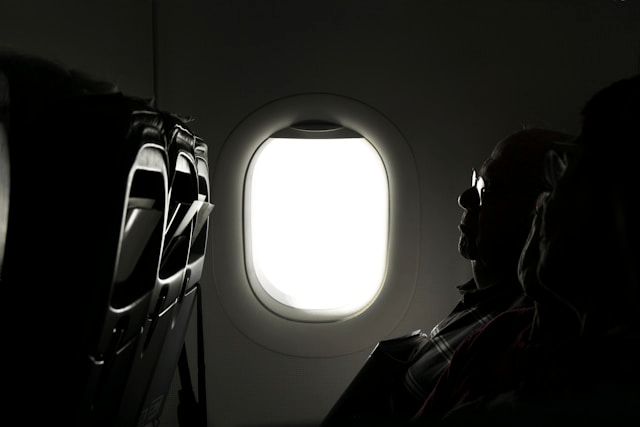You’ve planned the perfect trip. Your bags are packed, passport is ready, and you’re excited to explore a new destination. But there’s one sneaky travel companion that can derail your plans before they even begin: jet lag.
Jet lag is more than just feeling a little tired. It can throw off your sleep, affect your mood, and drain your energy, making it harder to enjoy your trip or stay focused during business travel. Luckily, learning how to handle jet lag like a pro can help you minimize its effects and adapt faster to new time zones.
In this article, you’ll find practical, science-backed jet lag recovery tips to help you beat fatigue and feel your best no matter where you land.
What Is Jet Lag and Why Does It Happen?
Jet lag occurs when your body’s internal clock, also known as your circadian rhythm, gets out of sync with the local time of your destination. This often happens when you travel across multiple time zones especially on long-haul flights going east or west.
Common symptoms of jet lag include:
-
Difficulty falling asleep or waking up
-
Daytime fatigue or sluggishness
-
Irritability or mood swings
-
Brain fog or trouble concentrating
-
Upset stomach or digestive issues
The more time zones you cross, the worse the jet lag tends to be. But with some preparation and smart travel habits, it’s possible to avoid jet lag when flying or reduce its impact significantly.
Before You Fly: Set Yourself Up for Success
Preventing jet lag starts before you even board the plane. These pre-travel strategies can help your body ease into the time shift.
1. Gradually Shift Your Sleep Schedule
A few days before your trip, start adjusting your bedtime and wake time to match the schedule of your destination. Going east? Try to go to bed and wake up earlier. Heading west? Stay up later. Small shifts even 30 minutes a day can make a big difference.
2. Choose the Right Flight Time
When possible, book flights that arrive in the morning or early afternoon so you can spend time in daylight. This helps reset your internal clock faster and supports jet lag recovery.
3. Stay Hydrated Before and During Your Flight
Dehydration can worsen fatigue and make jet lag symptoms more intense. Drink plenty of water before and during your flight, and avoid alcohol and excessive caffeine, which can interfere with sleep quality and dehydrate you.
4. Pack Like a Pro
Bring a sleep mask, neck pillow, earplugs, and any natural remedies for jet lag you prefer, like melatonin or herbal teas. Having the right tools on hand can help you rest more effectively during travel.
During the Flight: Stay Ahead of Jet Lag
What you do on the plane can have a big impact on how you feel when you land. These in-flight tips will help you avoid jet lag when flying across time zones.
1. Adjust to the New Time Zone Early
Once you board, reset your watch or phone to your destination’s time. Start behaving as if you’re already there if it’s nighttime at your destination, try to sleep; if it’s daytime, stay awake and alert.
2. Sleep Smart
If you need to sleep, use your mask and earplugs to create a restful environment. Some travelers find that melatonin supplements (typically 0.5–3 mg) help them fall asleep faster. Be sure to consult a doctor before trying new supplements.
3. Move Your Body
Get up to stretch or walk down the aisle every couple of hours. Movement improves circulation and helps fight stiffness and fatigue a small yet powerful jet lag travel hack.
4. Eat Lightly
Heavy meals and sugary snacks can weigh you down and disrupt your energy levels. Opt for light, balanced meals, and avoid too much salt or processed foods during the flight.
After You Land: Beat Jet Lag Like a Pro
The first 24–48 hours after landing are crucial for adjusting to your new time zone. Here’s how to recover from jet lag efficiently and start enjoying your trip.
1. Get Sunlight Exposure
Natural light is one of the best ways to reset your internal clock. Spend time outside as soon as possible, especially in the morning. Light helps regulate melatonin production and supports a quicker adjustment.
2. Avoid Napping (Unless You Must)
It’s tempting to crash after a long flight, but long naps can delay your adjustment. If you’re really struggling, take a short nap (20–30 minutes) in the early afternoon just enough to recharge without throwing off your sleep later.
3. Eat on Local Time
Start eating meals according to the time zone you’re in. This signals to your body that it’s time to adjust and helps stabilize your digestion and energy.
4. Stick to a Routine
Try to sleep and wake at consistent times, even if you don’t feel tired at night. Your body thrives on regularity, and a steady routine will support faster jet lag recovery.
Tools and Products to Help With Jet Lag
Travel tech and natural remedies for jet lag can support your efforts to stay alert and adjust faster.
-
Melatonin supplements: Best when taken 30 minutes before desired sleep time in the new time zone.
-
Light therapy lamps: Useful if you’re indoors or in a location with limited daylight.
-
Jet lag apps: Tools like Timeshifter or Uplift offer personalized plans based on your flight details and sleep habits.
-
Hydration tablets: Replenish lost electrolytes from dry cabin air and travel fatigue.
-
Blue light blocking glasses: Helpful in controlling light exposure before bed.
Pro Tips for Frequent Flyers and Business Travelers
If you travel often for work or pleasure, jet lag doesn’t have to derail your schedule. Here are some advanced travel hacks for seasoned flyers:
-
Schedule arrival buffer time: Avoid important meetings or events within the first few hours of landing.
-
Stay consistent: Stick to your preferred sleep schedule as closely as possible across time zones.
-
Use noise-canceling headphones: Great for improving in-flight sleep or reducing stress in noisy environments.
-
Limit screen time before bed: Blue light can delay melatonin production dim your screens and use night mode when possible.
Conclusion
Jet lag might be unavoidable on long-haul trips, but it doesn’t have to control your travel experience. With the right planning, habits, and tools, you can learn how to handle jet lag like a pro and arrive at your destination feeling refreshed and ready.









